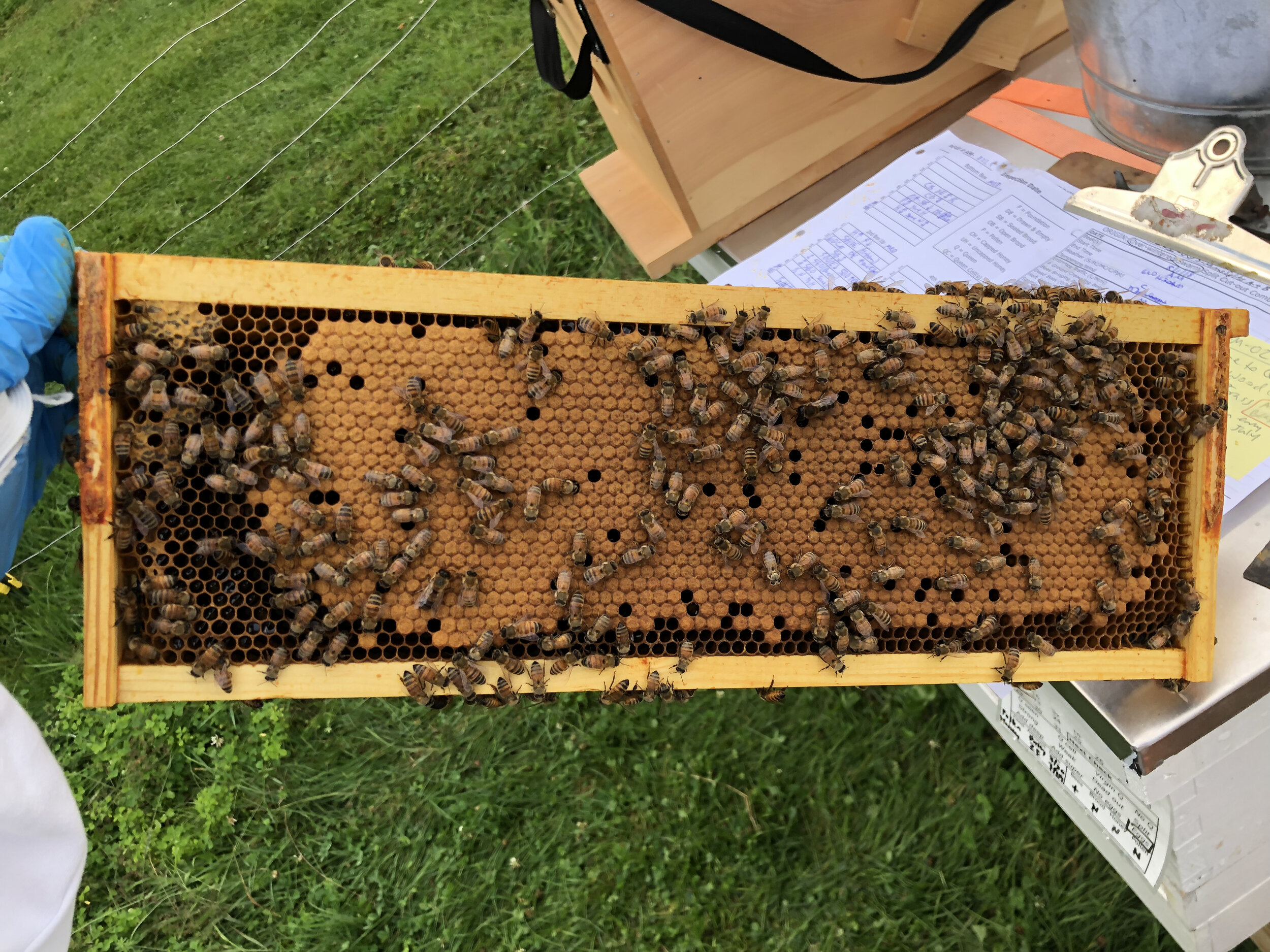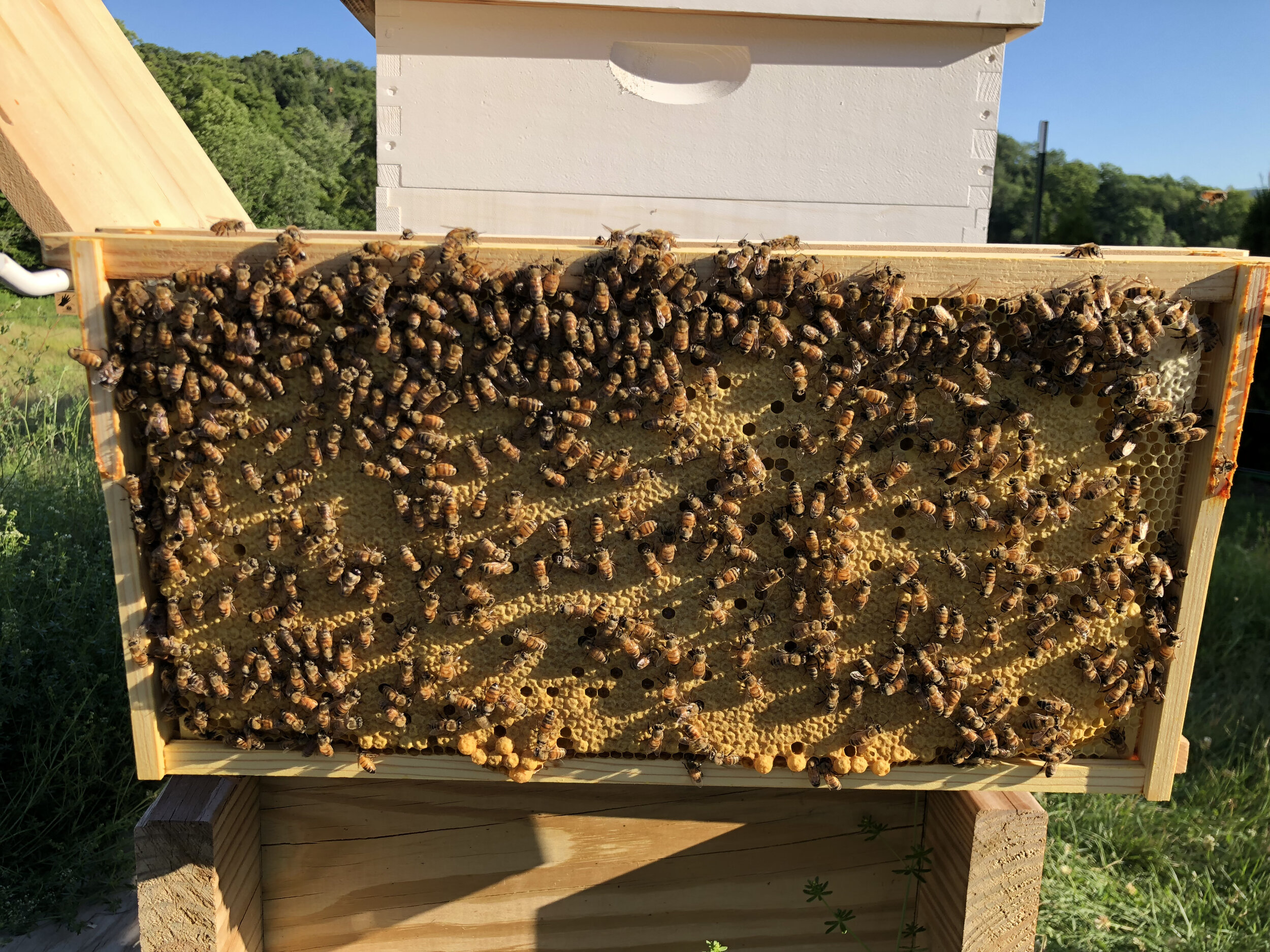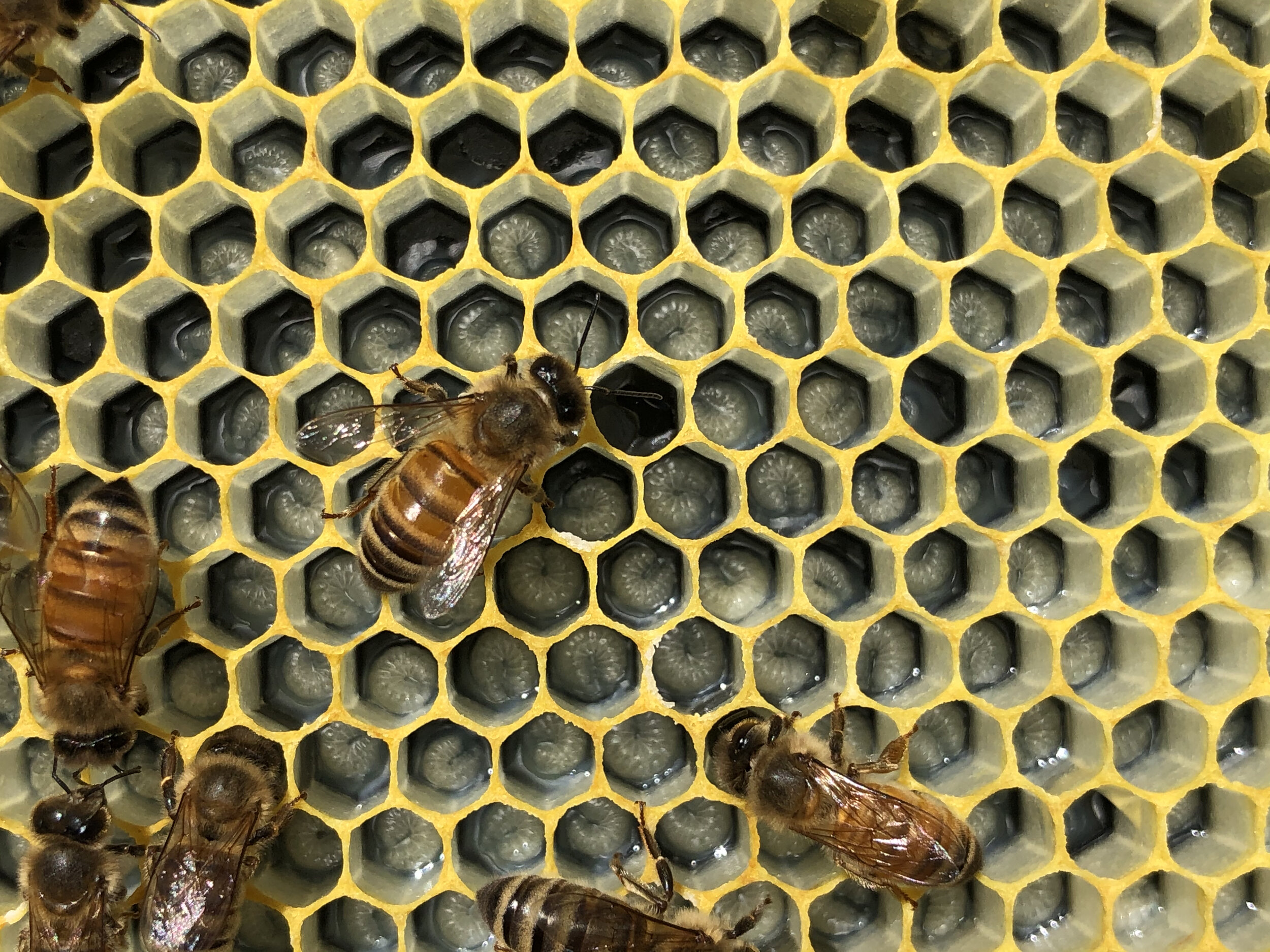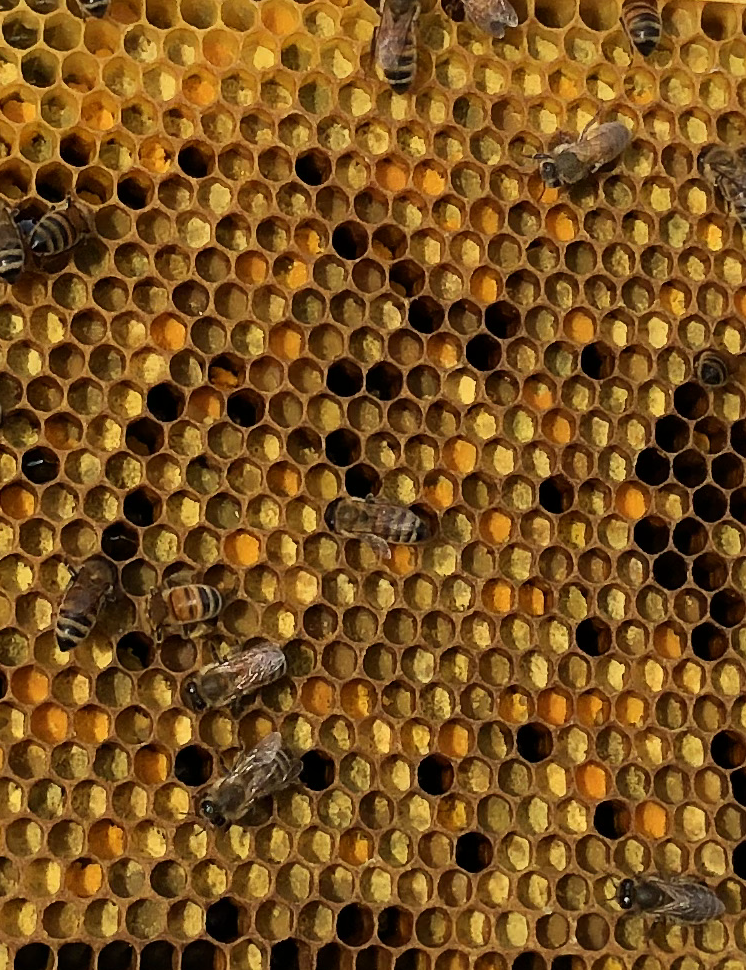





Honey Bee Colonies
SPRING NUCS are typically available mid June.
5 Frame Medium
Northern-Raised Queen, marked according to year of emergence
3+ frames of brood
1 frames of nectar/honey/pollen
1 frame foundation
4+ frames of bees
NOTE: All frames are mediums
$275
Delivery & installation available for a separate fee (see consultation page)
8 Frame Medium
Northern-Raised Queen, marked according to year of emergence
4-5 frames of brood
2 frames of nectar/honey/pollen
1 frame foundation
6+ frames of bees
NOTE: all frames are mediums
$385
Delivery & installation available for a separate fee (see consultation page)
Note: Pickup option requires that you bring a single 8 frame medium hive with top/bottom/inner cover, ratchet strap, and a robbing/moving screen to close the entrance. You may use 10 frame medium if you also bring 2 frames.
About Our Bees
Northern Survivor Genetics
We deliberately founded and continue to populate our apiary with the feral bee honey colonies we rescue through our Bee Removal Service. In order to survive, these bees have already undergone natural selection for local environmental conditions and parasite resistance. Once a rescued colony survives its first winter on our farm, we quantify their productivity, honey production, disease resistance, and ability to keep Varroa mite levels low. We use that information to selectively and intentionally propagate the lineages with the BEST traits.
Our Bees Have Great Nutrition
When bees are unable to access diverse forage they experience nutritional stress that negatively impacts growth, development, and immune response. Reductions in the diversity and abundance of host-plant species resulting from land conversions are linked to pollinator population declines. Fortunately, Musante Farm has preserved our farmland with a Massachusetts Agricultural Preservation Restriction. This has insured an abundant diversity of native floral resources throughout the spring and into fall. This is a nutritional bounty for our bees and it shows in their health, strength, and the pollen diversity in their hives.
Our Management
INSPIRED BY CURIOSITY: about bees & nature
DRIVEN BY DATA: know, don’t guess
LED BY SCIENCE: observation, experimentation
FUELED BY PASSION: love for our planet
SUCCESS BY NUMBERS: evidence-based management
Other Bee Options
Want Bees?
Includes:
An online introduction to beekeeping that will include advice on purchasing gear, equipment, & setting up your apiary (bee yard).
A 5-frame Medium Nucleus Colony. By starting with a small colony, you will grow with your bees.
APIARY MEET-UP. Hands-on experience inspecting a bee hive. You will learn first-hand what to look for, what information you should write down, and how to identify common problems in your hive.
A half-day INTERNSHIP shadowing me in my apiary. You will gain more detailed experience conducting hive inspections, record-keeping and increase your comfort handling bees.
30 mins of virtual ON-DEMAND consultation.
$450
Have Bees?
Includes:
APIARY MEET-UP where we will review hive inspections, record-keeping, basic hive management, and we will discuss methods of mite monitoring.
A half-day internship at my apiary. Will include experience performing an alcohol wash for Varroa mite sampling.
45 mins of virtual ON-DEMAND consultation time via FaceTime, Zoom, or Google Meet.
$200
Love Bees?
Experience bees without doing the work by HOSTING a bee colony
Residential Hive Hosting:
We will bring one or more of our beloved Honey Bee colonies to your location and will perform all colony care and maintenance.
You will gain the satisfaction of knowing that you are directly HELPING BEES by providing them a safe home.
We will provide you with 2 lbs. of honey from your colony at the end of the season. If your colony fails to produce surplus honey —which can happen depending on weather and available forage — you will receive honey from one of our other colonies.
Hosting Requirements:
An easily accessible 8’x12’ area (Ideally 12’x12’) to set up hive
A location that is sunny for at least half of the day - to increase potential foraging opportunities. Morning sun preferred.
Low to no pedestrian traffic
Plenty of pesticide-free bee forage in surrounding areas
No one allergic to bees living at location
Most Berkshire county locations will also require the installation of an electric fence to exclude bears
1 year contract
contact us for pricing
FAQs
Why do our bees come with educational and consultation support?
WE WANT YOU & YOUR BEES TO BE SUCCESSFUL!
Beekeeping is increasingly more challenging every year. Plus, given the short bee season and harsh climate of New England it makes it difficult for new (and even experienced) beekeepers to successfully overwinter bee colonies.
We also love our bees and want them to survive and thrive! The best beekeepers are always learning and adapting their management plan to nurture the success of their bees. We want to share what has been successful for us and help you develop your own personal management plan. We will never insist that you use our methods, but rather we share what is working for us and want to be there to assist you on your own unique journey.
Why is beekeeping so challenging nowadays?
Some reasons include: decreasing floral resources, habitat fragmentation, poorly adapted genetics, increasingly more virulent pests/pathogens, pesticides, herbicides fungicides, beekeeper mis-management, and climate change.
Why must beekeepers monitor their pest and pathogen populations?
The natural history of honey bees ensures that bees from different colonies, within their 3-5 mile home range radius, will come in close contact. Foragers interact on flowers and male drone bees habitually move between colonies. It is also known that significant bee drift occurs between colonies a managed apiary.
Drifting worker bees and drones will spread pests and pathogens to other colonies. It is especially essential that beekeepers monitor their Varroa mite populations and insure these pests stay under control. A single large colony can produce 10,000 or more mites in a single season! When colonies collapse from mites and the viruses they vector, it has been show that many of these mites will spread to other local bee colonies.
Why should you purchase bees from Musante Farm?
We believe that Musante Farm bee stock will give you a head start towards successfully over-wintering your bees! The genetics of our bees originate from feral cut-out removal colonies that have already passed through the fine needle eye of natural selection. In addition, over the past 5 years we have continued to selectively propagate bees with the best traits that respond to our Northern weather patterns and are able to keep their mite levels down.





